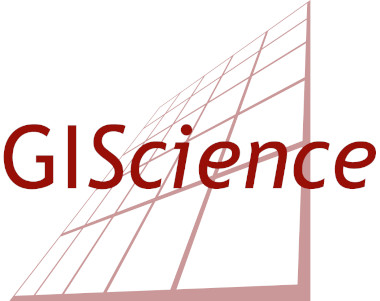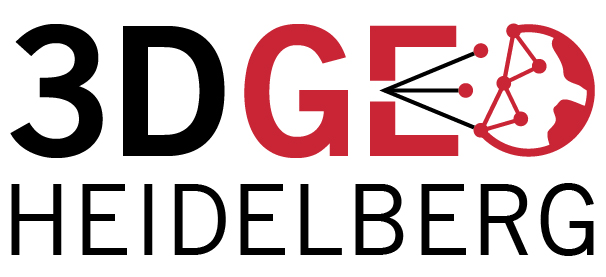Author: GIScience HD
-
HGG-Vortrag Di 30.11.: Hangrutschungsmodellierung unter dem Einfluss von Klima- und Landnutzungswandel mit Data-Science-Methoden, Prof. Brenning
Der nächste Vortrag der Heidelberger Geographischen Gesellschaft HGG findet am Dienstag, 02. November 2021, 19:15 Uhr ONLINE statt: Dienstag, 30. November 2021, 19:15 Uhr Prof. Dr. Alexander Brenning (Universität Jena) Hangrutschungsmodellierung unter dem Einfluss von Klima- und Landnutzungswandel mit Data-Science-Methoden Regionalskalige empirische Gefährdungsanalysen für Naturgefahren nutzen Innovationen der Datenwissenschaften, um gefährdete Reliefeinheiten präziser und effizienter zu…
-
How to become ohsome part 9 – More ways to access the ohsome API
At long last, welcome back to a new blog post of the “How to become ohsome“-series. As it’s been quite a while since you got an introduction to how to access the ohsome API, we would like to pick up this topic one more time this month. The former post with different ways to access the ohsome API…
-
New Project: GeCO: Generating high-resolution CO2 maps by Machine Learning-based geodata fusion and atmospheric transport modelling
Recently a new project has been starting in the context of Climate Change Action research: GeCO: Generating high-resolution CO2 maps by Machine Learning-based geodata fusion and atmospheric transport modelling The spatiotemporal distribution of greenhouse gases and their sources on Earth has so far been considered mainly at relatively coarse resolutions. There is a lack of…
-
Stellenangebot vom DRK Generalsekretariat Berlin zur Unterstützung der HeiGIT Kooperation
Sie haben Erfahrung in den Bereichen Geoinformatik und Open Data und würden gerne dazu beitragen, dass Menschen in Deutschland und weltweit Hilfe erhalten? Sie würden gerne als Teil des größten humanitären Netzwerks der Welt helfen, dessen zukünftige Ausrichtung in diesen Bereichen mitzugestalten? Dann kommt diese Stellenausschreibung genau richtig: Das Generalsekretariat des Deutschen Roten Kreuz in…
-
FOSS4G 2021 Videos with HeiGIT contributions online – OSM data quality and MapSwipe
Recently videos with our contributions by HeiGIT to the FOSS4G conference were put online. Did you miss the event? Now you can watch whenever you like 🙂 Benni by HeiGIT explains who to use the ohsome.org framework to develop an OSM Confidence Index to support humanitarian mapping https://www.youtube.com/watch?v=DWkISL4qbME FOSS4G 2021 Using the ohsome framework to…
-
Waterproofing Data Project: Sharing experiences and accessing impacts
After three interesting years, the Waterproofing Data Project (WPD) comes to an end. Starting with a workshop in Brazil and several field trips, Corona times started and we had to rethink and reorganize our plans for the second half of the project. Our final workshop day in Heidelberg was also planned to be in person…
-
ohsome Region of the Month – crop tagging
Hello and welcome back to another blog post of the ohsome Region of the Month series where you can learn about potential use cases of the ohsome API. This month we were be looking at the crop tag and tried to find out whether there is a seasonality to the tagging behaviour in OpenStreetMap in different…
-
HGG Vortrag Dienstag 02.11.: Experiences from Designing Knowledge Graphs for Environmental Intelligence (K. Janowicz, UCSB)
Der nächste Vortrag der Heidelberger Geographischen Gesellschaft HGG findet am Dienstag, 02. November 2021, 19:15 Uhr ONLINE statt: Prof. Dr. Krzysztof Janowicz (University of California Santa Barbara (USCB), Department of Geography) Künstliche Intelligenz & Big Data im Silicon Valley: Erfahrungen aus der Gestaltung eines geografischen Wissensgraphen für Umweltintelligenz Das Silicon Valley gehört international zu den…
-
WENN ES IN DER STADT ZU HEISS WIRD
Aktuelle Meldung der Universität Heidelberg zum Projekt HEAL: https://www.uni-heidelberg.de/de/newsroom/wenn-es-in-der-stadt-zu-heiss-wird BADEN-WÜRTTEMBERG STIFTUNG FÖRDERT HEIDELBERGER PROJEKT ZU ROUTINGDIENST MIT HITZEVERMEIDENDEN WEGSTRECKEN Wo in der Stadt Heidelberg ist es besonders heiß und wie wirken sich lokale Hitzebelastungen auf gefährdete Personengruppen aus? Mit dieser Frage befasst sich ein Forschungsprojekt, durchgeführt von der Abteilung Geoinformatik und dem TdLab Geographie am Geographischen…
-
“Digital Geographies” – the topic of this semesters HGG programme
Digitalisierung ist ein aktuelles Megathema, das alle gesellschaftlichen Bereiche umfasst. Einerseits beeinflusst und verändert Digitalisierung wie wir leben und andererseits verändern sich durch Digitalisierung auch die Möglichkeiten der Forschung, sowohl in der Datenerhebung als auch in Analyse. Wie verändern sich Sozialräume durch Digitalisierung? Wie kann Digitalisierung in der Fernerkundung zu einem besseren Verständnis von Klima-…
-
Automatic mapping of national surface water with OpenStreetMap and Sentinel-2 MSI data using deep learning
Large-scale mapping activities can benefit from the vastly increasing availability of earth observation (EO) data, especially when combined with volunteered geographical information (VGI) using machine learning (ML). High-resolution maps of inland surface water bodies are important for water supply and natural disaster mitigation as well as for monitoring, managing, and preserving landscapes and ecosystems. In…
-
Alexander Zipf selected as Marsilius Fellow 2021/2022 – Project with HIGH on Climate Change and Health
Many pressing problems of our time – climate change, aging societies, questions of modern medicine – cannot be solved by one discipline alone. It is becoming ever more urgent for scholars to collaborate across disciplines – natural sciences, life sciences, and social sciences, law, and humanities. The Marsilius Kolleg at Heidelberg University is an institutional…


